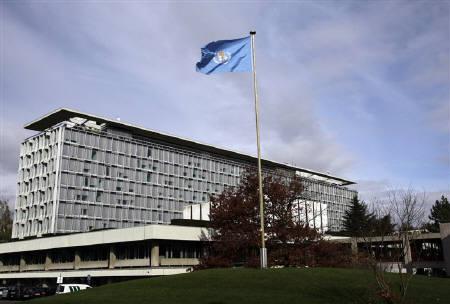LONDON - Multi drug-resistant tuberculosis remains at crisis levels, with about 480,000 new cases this year, and various forms of the lung disease killed about 1.5 million people in 2013, the World Health Organization (WHO) said on Wednesday.
In recent years, the emergence of multi drug-resistant TB -- a manmade problem caused by regular TB patients being given the wrong medicines, the wrong doses, or failing to complete their treatment -- has posed an increasing global health threat.
About 9 million people contracted tuberculosis during the year and about 3.5 percent of those had a strain that was to some extent drug-resistant -- cases that are much harder to treat and have significantly poorer cure rates, it said.
"There are severe epidemics in some regions, particularly in Eastern Europe and Central Asia," the U.N. health agency said in its annual assessment of the global burden of TB, noting that in many places, the treatment success rate is "alarmingly low".
Furthermore, extensively drug-resistant TB (XDR-TB), which is even more expensive and difficult to treat than multi drug-resistant (MDR-TB) strains, has now been reported in 100 countries around the world.
Medical charity Medecins Sans Frontieres TB expert, Grania Brigden, said the "alarming spread of drug-resistant TB from person to person in the former Soviet Union is of critical concern, along with the growth in MDR-TB and XDR-TB cases".
"Access to proper treatment is drastically low: only one in five people with multidrug-resistant TB receives treatment; the rest are left to die, increasing the risk to their families and communities and fueling the epidemic," she said in a statement.
Once known as the "white plague" for its ability to render its victims skinny, pale and feverish, TB causes night sweats, persistent coughing, weight loss and blood in the phlegm or spit. It is spread through close contact with infected people.
Of all infectious diseases, only the human immunodeficiency virus (HIV) that causes AIDS kills more people than TB.
The Geneva-based agency also warned that a lack of funding is hampering efforts to combat the global epidemic.
An estimated $8 billion is needed each year to be able to tackle the disease fully, it said, and an annual shortfall of about $2 billion means that is not possible for now.
However, efforts to better diagnose and treat the lung disease are beginning to pay off, the WHO said, noting such progress has saved an estimated 37 million lives since 2000.
While "a staggering number of lives are being lost to a curable disease", the WHO said the TB death rate fell by 45 percent since 1990 and the number of people developing TB is declining by an average of 1.5 percent a year.





















































